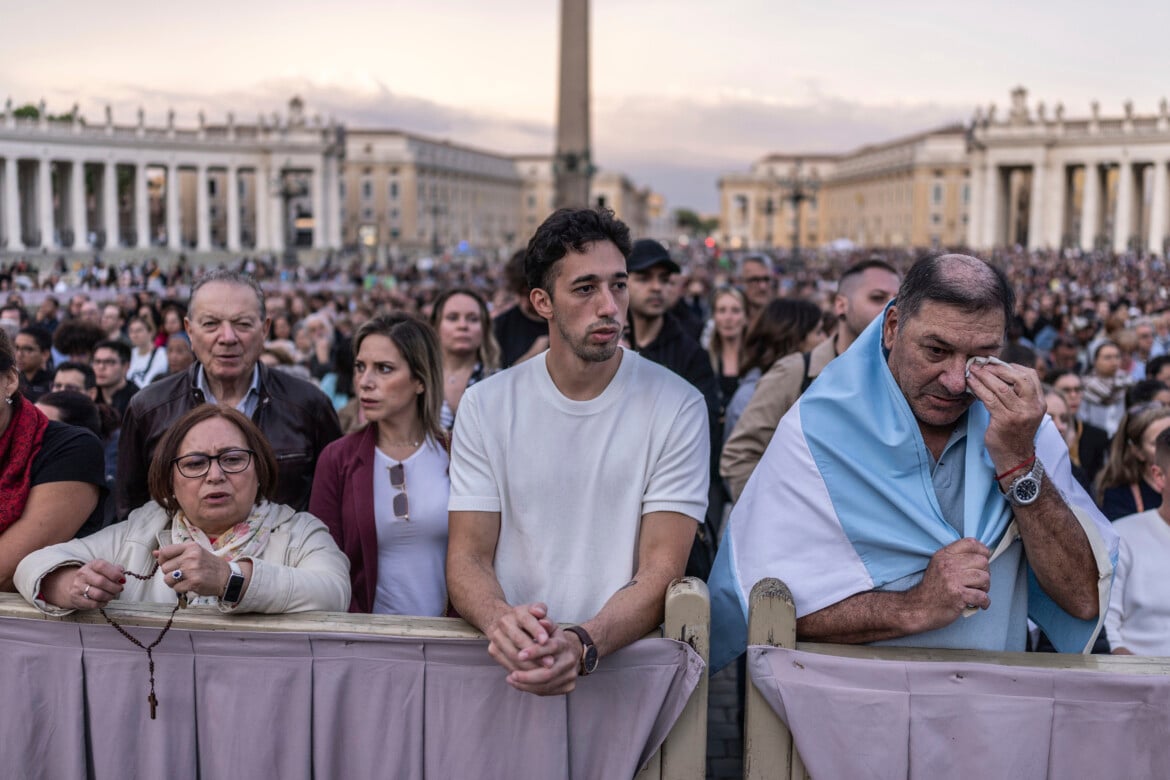Commentary
Pope Francis brought a message not of charity, but struggle
The message of his pontificate has been directly political, primarily because he has had the courage (often lacking, sadly, among segments of the secular left) to clearly name the enemy responsible for injustice: capitalism.

In this moment of profound sadness for so many around the world – a multitude of which I am also part – there is at least one thing I feel glad about, and downright proud: in 2016, it was our il manifesto that published and distributed, along with the newspaper, a book containing one of Pope Francis’s most beautiful and significant speeches.
This was at a time when even certain respected media outlets still ran headlines such as: “Pope Francis Blesses The Social Centers,” “Bergoglio Meets Leoncavallo,” or “Zapatistas, Marxists, Indignados, All Coming To Visit The Pope.” (They later understood that adopting such an ironically contemptuous tone, as though Pope Francis were some insignificant figure, was deeply unpopular, and adjusted their approach to some extent.)
The book published by our newspaper was released on the occasion of the World Meeting of Popular Movements (WMPM) in Rome, attended by prominent figures including the one-and-only Pepe Mujica, the former guerrilla fighter of the Tupamaros movement and, until recently, president of Uruguay, and the renowned Vandana Shiva. Bernie Sanders was also invited, but was absent due to his ongoing involvement in the U.S. presidential campaign. Ninety-nine organizations from 68 countries participated, essentially the same movements that had joined our World Forums since the Porto Alegre days – including, notably, Brazil's Landless Workers’ Movement (MST) and its leader Stedile. Similar topics were discussed: ecology, common goods, universal wages.
At the previous year's meeting held in Bolivia, then-president Evo Morales gifted the Pope, who had traveled there to lead the gathering, a wooden cross crafted from a hammer and sickle. One might say this distinctive wooden symbol had already quietly become the emblem of the WMPM by the time of the Rome meeting.
I wrote “one might say” because I know that great caution is advisable. Yet we cannot deny that Francis’s papacy has significantly and clearly reoriented the substance of the Vatican’s politics. Bergoglio has been more than just a more compassionate pope dedicated to emphasizing generosity and sacrifice.
The message of his pontificate has been directly political, primarily because he has had the courage (often lacking, sadly, among segments of the secular left) to clearly name the enemy responsible for injustice: “this unjust structure that links all exclusions,” dominated by “the primacy of money,” which “enslaves, steals liberty,” and “idealizes infinite progress” and unconditional “efficiency.” Capitalism, in short.
The fundamental novelty lies not just in his forceful critique of current conditions, but in identifying a historically real adversary, thus recognizing the contradictions inevitably dividing society and mandating the duty of struggle if one aims to overcome them. These conflicts cannot be ignored (this may not be exactly the same as our traditional class struggle, but it is naive to believe the conflict has vanished).
That is also why Pope Francis's insistence on reviving something weakened in recent decades – subjectivity, the building up of the agency of those essential to driving change, now domesticated and anesthetized – seems so important to me. Subjectivity, in short.
In our times, the Pope addressed the exploited, the victims of the system, urging them not to “stand with arms folded,” but instead—as stated in the concluding document of the Rome meeting—to transition “from resistance to acquiring political power, from social struggle to electoral struggle.”
In short: to understand that solidarity is genuine only when accompanied by struggle. It is thus essential to move from charity to politics: a politics that must overcome these contradictions rather than ignoring them. The pope's most explicit and provocative statement was precisely that we don’t need “politics for the poor,” but a “politics of the poor.” Or, even more explicitly, as he told young people: charity is a beautiful thing, but what we need is politics. A notion deeply held by Karl Marx as well, and one which ought to command far greater attention from today's left.
Originally published at https://ilmanifesto.it/agli-sfruttati-non-serve-la-carita-ma-la-lotta on 2025-04-22
